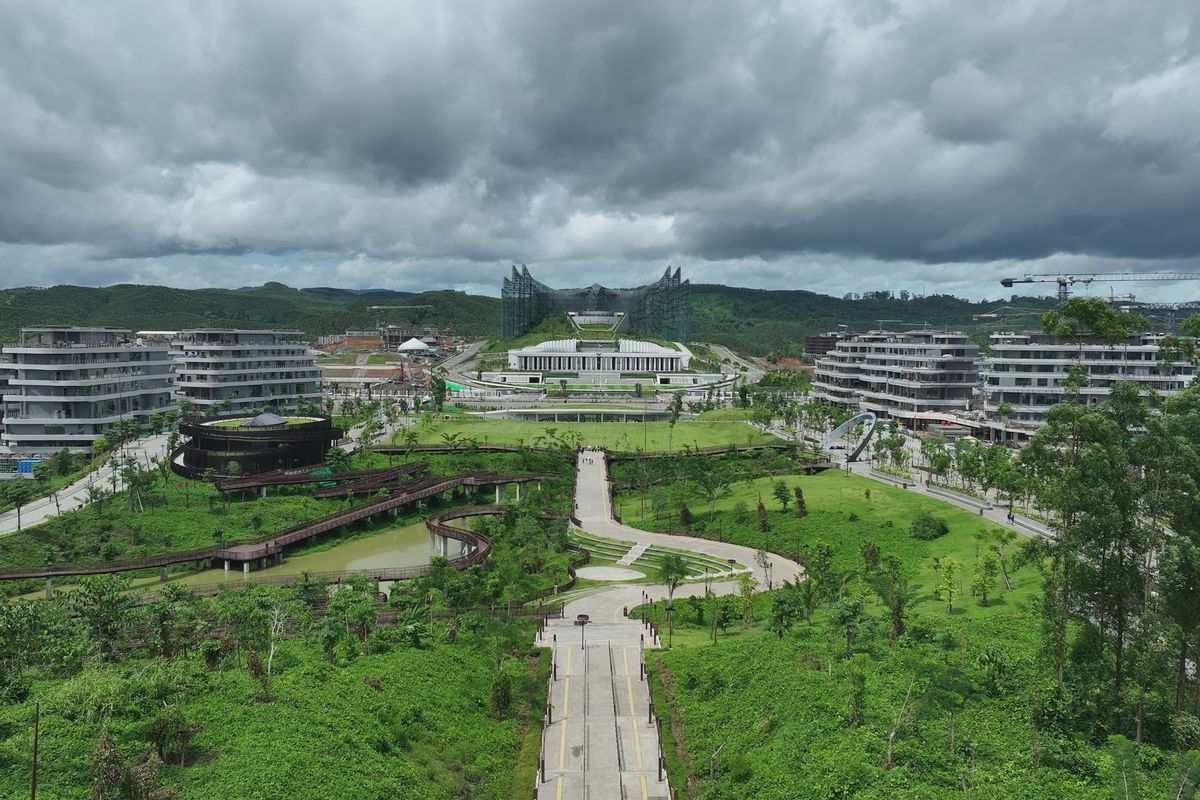Prabowo: Nusantara will be Indonesia's political capital from 2028
The provision is contained in the new presidential regulation, with updates on government work for 2025. The development of the new capital, inaugurated last year but incomplete, enters its second phase (2025-2029). Cuts in public spending are a cause for concern, while the authorities deny any interruptions and are focusing on private funding.
Jakarta (AsiaNews) - Nusantara - a city-construction site inaugurated in 2024 in the regency of North Penajam Paser, East Kalimantan province - will be Indonesia's political capital in 2028. This was decided by President Prabowo Subianto. The initiative is contained in Presidential Regulation (Perpres) No. 79 of 2025 on updating the government's work plan for 2025. The document was promulgated on 30 June and also contains the requirements for Nusantara to become the political centre in three years' time.
“The planning and development of the area, as well as the transfer to the capital Nusantara, are being carried out as part of the effort to support the realisation of Nusantara as the political capital in 2028,” reads the appendix to the presidential regulation. The process of developing Indonesia's new capital city, which is estimated to be completed in 2045 and will replace the megacity of Jakarta, 2,000 kilometres away, entered its second phase in 2025, the first year of President Prabowo Subianto's administration.
Unlike the first phase, which focused on the central government area, this phase prioritises facilities such as public transport, residential areas for civil servants and the construction of legislative and judicial buildings, with the aim of making Nusantara the capital by 2028. However, concerns have arisen after President Prabowo issued an instruction to cut public spending by 306.6 trillion rupees (over 15 billion euros), leading to a temporary freeze on the budget for projects led by the Ministry of Public Works, such as the construction of Nusantara.
Nevertheless, officials have emphasised that construction will continue, with 48.8 trillion rupiah (over 2 billion euros) already allocated for the second phase (2025-2029). Nusantara Authority spokesperson Troy Pantouw has denied rumours of projects being blocked or workers being laid off, stating that development is proceeding according to plan. Deputy Minister Diana Kusumastuti explained that the budget freeze is a routine mechanism and could be reopened after talks with parliament.
Funding for the second phase will come from several sources: 48.8 trillion rupiah from the state budget (APBN); 60.93 trillion rupiah from public-private partnerships; 6.49 trillion rupees from private investment. The government also plans to gradually reduce its dependence on the state budget in favour of private funding and special taxes. Earlier this year, presidential communications chief Hasan Nasbi reiterated that Prabowo is committed to completing the project, with development continuing despite fiscal tightening.







.png)










